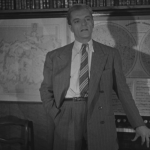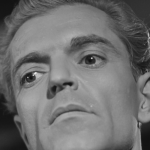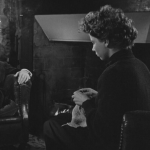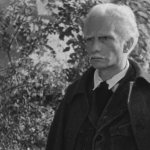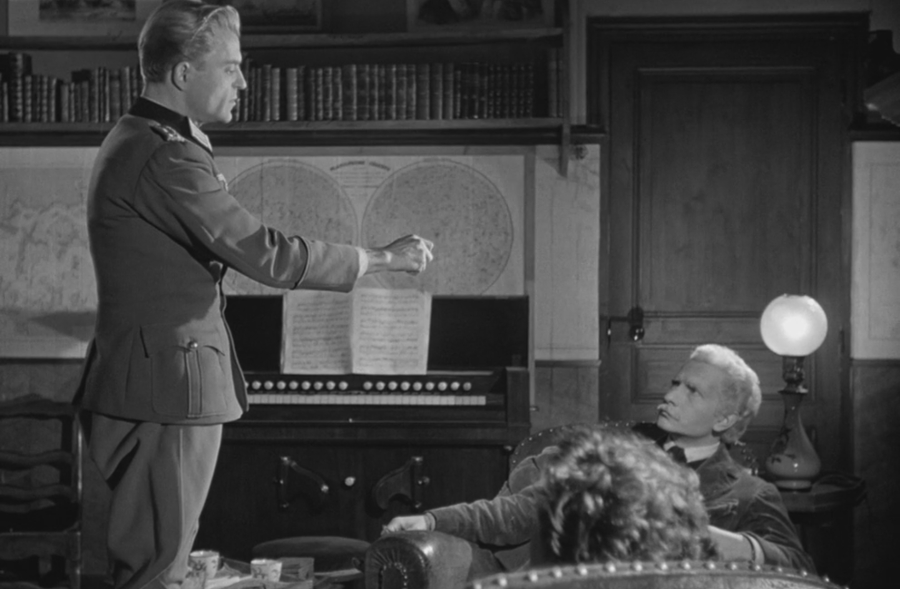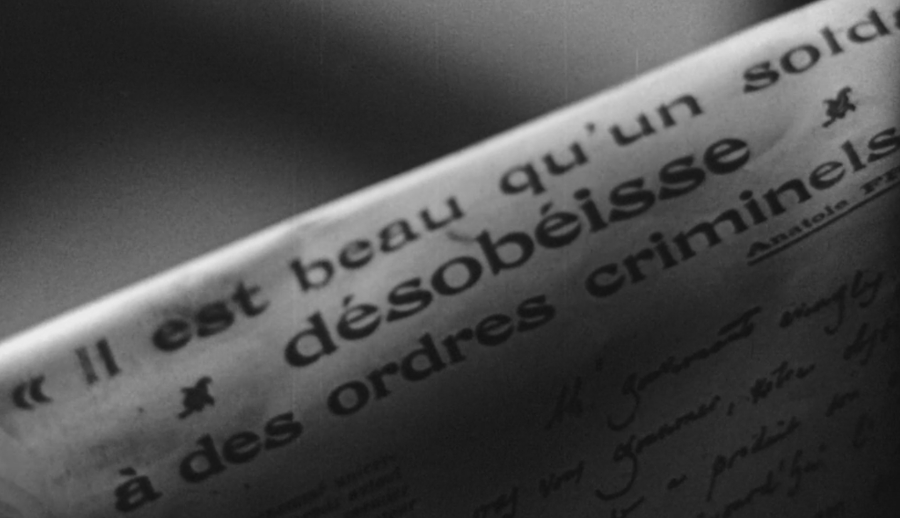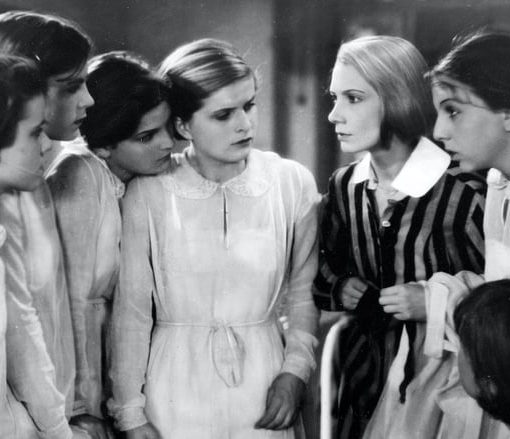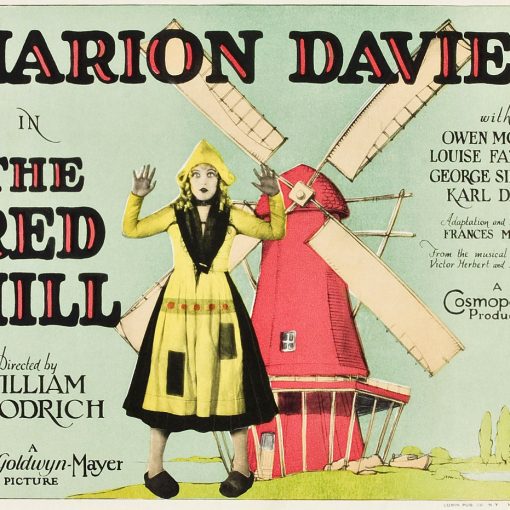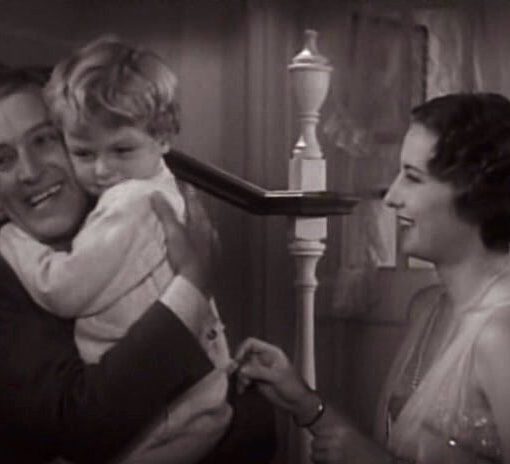 | Original title: Le Silence de la Mer |
Rating:  (4 / 5) (4 / 5) | |
| Year: 1949 | |
| Director: Jean-Pierre Melville | |
| Duration: 88 min. | |
| Genres: Drama, War |
The Silence of the Sea
That’s the English title of Le Silence de la Mer. It is director Jean-Pierre Melville’s first film and a groundbreaking film after the war for many reasons. It is based on a story written by a member of the French resistance called Vercors (pseudonym of Jean Bruller), who published a book with the same name as this film’s title during the German occupation in 1942. It tells about an older man and his much younger niece. They live in a house somewhere in rural France – I forgot where exactly, but that doesn’t really matter. The story itself is set in 1941, so relatively early on during the occupation. It is then that a German officer, Werner von Ebrennac, settles himself in the house’s attic. He isn’t the kind of Nazi you would perhaps expect. He’s just a German guy, an artist, who got drafted and is now fighting for his ideals.
In fact if it weren’t for the war, he seems like a nice fellow. Every night he enters the living room to hold a monologue about his ideals, his thoughts or other mundane things. After he is done talking, he wishes everyone a pleasant evening and he returns to the attic. The man and his niece – both unnamed – just sit, watch and listen without uttering a word. It is their way to offer resistance to the occupation, by remaining silent. It may seem a somewhat passive approach, but it’s still better than nothing. The German officer could have been a beast who could have punished them for it. Anyway, I said this film was groundbreaking for its time, and it truly was.
“Sincerity can always overcome obstacles” – Werner von Ebrennac
Aside from a few short moments outside and a few minutes in Paris, the entire film is shot inside the house of Vercors, the writer of the novel. It was shot basically by amateurs – someone who had never worked on a film, and it was Melville’s first film. It broke with the conventions of the time in many ways, such as the lighting which often is very dark, the angles from which it was shot, but also the way in which the dialog works. There isn’t a whole lot of dialog, there are just the long monologues by von Ebrennac and the narrated thoughts of the old man. The woman basically just sits in the room. It makes for a strange but beautiful film with a strong anti-war message. How pointless is war, anywhere. Dreams are shattered, lives are lost and for what?
“A leader who does not have the love of his people is a miserable puppet” – Werner von Ebrennac
Later influences and the extra’s on the bluray disk
For some reason, this film reminded me of Chris Marker’s La Jetée (1962). It has a similar calm atmosphere with a lot of narration. It is said that this Melville film inspired a lot of the 1960’s French directors, like Jean-Luc Goddard and François Truffaut. They were part of the Nouvelle Vague (New Wave) movement. They believed in experimenting, shooting films on location and not being restricted by what was considered the way to do things. And I’m sure many other things too, but I haven’t yet seen enough of these films to say much more about it. I do know that after having seen Le Cercle Rouge a while ago I’m going to find me more Melville – I’m hooked. Le Samuraï is very high on my list of things to find and watch.
The Masters of Cinema disk of Le Silence de la Mer contains a 20 minute talk that mentions some interesting things about this film. One of those things is that Melville initially was not allowed to film Le Silence de la Mer by Vercors. He felt that it would not do justice to the members of the resistance. Melville, having been in the resistance himself, made a strange proposal, which – even stranger – was accepted. He would shoot the film and then show it to the most famous members of the resistance for review. If they felt it did justice to their deeds, Melville would be allowed to release the film. Well, we can guess what happened there. With the support of the resistance, the film became a big hit in France. It launched Melville’s career as one of France’s greatest directors. Other Melville classics include Le Cercle Rouge (1970), Le Samouraï (1967), Bob le Flambeur (1956) and L’armée des Ombres (1969).
“It is a fine thing when a soldier disobeys criminal orders” – Newspaper headline

